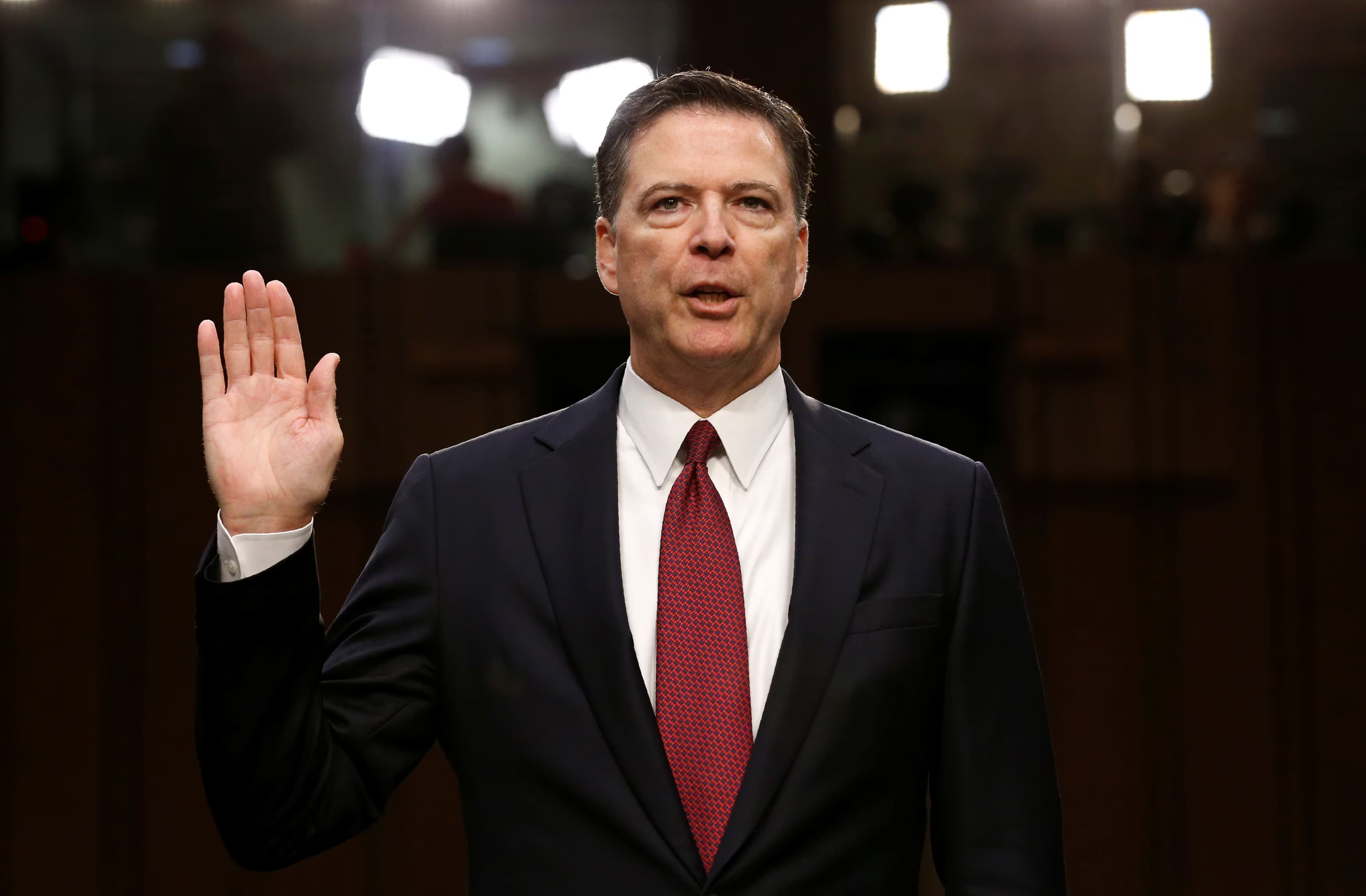We're loading the full news article for you. This includes the article content, images, author information, and related articles.
A federal judge’s scathing rebuke of the US Justice Department’s prosecution of former FBI Director James Comey raises significant questions about the integrity of the case and its political motivations, a development with global implications for the rule of law.

WASHINGTON D.C. – A United States federal judge has sharply criticised the Department of Justice (DOJ) for its handling of the criminal case against former FBI Director James Comey, citing a “disturbing pattern of profound investigative missteps” and potential “government misconduct.” In a scathing 24-page opinion issued on Monday, 17 November 2025, EAT, U.S. Magistrate Judge William Fitzpatrick ordered the extraordinary remedy of releasing secret grand jury materials to Mr. Comey’s defence team, a move that signals deep judicial concern over the prosecution's integrity.
The ruling casts a harsh light on a case that has been fraught with political controversy since its inception, stemming from the long and contentious history between Mr. Comey and two-term U.S. President Donald Trump. Mr. Comey was indicted on 25 September 2025, on two felony counts: making a false statement to Congress and obstructing a congressional proceeding. The charges relate to testimony he gave to the Senate Judiciary Committee on 30 September 2020, concerning the FBI's investigation into Russian interference in the 2016 U.S. presidential election.
The indictment was secured just days before the five-year statute of limitations was set to expire. It followed President Trump’s public calls for Mr. Comey's prosecution and the replacement of the U.S. Attorney for the Eastern District of Virginia, Erik Siebert, who had reportedly declined to bring charges due to insufficient evidence. Mr. Trump appointed Lindsey Halligan, a former personal lawyer for the president with no prior prosecutorial experience, as the interim U.S. Attorney. Ms. Halligan secured the indictment against Mr. Comey three days after her appointment.
Mr. Comey has pleaded not guilty, and his lawyers have argued the case is a vindictive and selective prosecution, filing motions to have it dismissed. The recent judicial ruling significantly bolsters the defense's claims of impropriety.
In his decision, Judge Fitzpatrick detailed numerous irregularities that he believes may have tainted the grand jury proceedings. He noted that the prosecutor, Ms. Halligan, appeared to have made “fundamental misstatements of the law” to the grand jurors. One statement, the judge wrote, may have improperly suggested to the jury that the burden of proof could shift to Mr. Comey at trial. Another appeared to imply that more evidence, not presented to them, existed to support the indictment.
The judge also raised serious concerns about the evidence-gathering process. He found that federal prosecutors may have violated Mr. Comey's constitutional rights by repurposing evidence seized years earlier in an unrelated investigation without obtaining a new warrant. This earlier probe, which closed without charges in 2021, involved a friend of Mr. Comey, Columbia Law Professor Daniel Richman. Judge Fitzpatrick described the DOJ's handling of this material as “cavalier” and noted a failure to protect potentially privileged attorney-client communications. The lead FBI agent who testified before the grand jury had been exposed to these potentially privileged materials shortly before his testimony.
Furthermore, the judge found unexplained gaps and irregularities in the transcript of the grand jury proceedings, making it unclear if the final indictment was the same one the jury actually deliberated on and approved.
While this case is unfolding thousands of miles away, its implications resonate globally, including in Kenya and East Africa. The perception of a politicised justice system in the world’s leading democracy can undermine international partnerships based on the rule of law and good governance. For nations like Kenya, which often collaborates with U.S. justice and law enforcement agencies, such high-profile allegations of misconduct can complicate diplomatic and operational ties. The case serves as a critical international benchmark on the importance of prosecutorial independence and the judiciary's role as a check on executive power.
The Justice Department, which had no immediate comment on the ruling, has filed a motion to freeze Judge Fitzpatrick's order to allow for an appeal. Mr. Comey’s trial is currently scheduled to begin in January 2026. However, this judicial rebuke provides his defense team with powerful new grounds to seek a full dismissal of the case, arguing the entire process was irredeemably flawed. The outcome will be closely watched as a test of the resilience of American judicial institutions amid intense political pressure.
Keep the conversation in one place—threads here stay linked to the story and in the forums.
Sign in to start a discussion
Start a conversation about this story and keep it linked here.
Other hot threads
E-sports and Gaming Community in Kenya
Active 9 months ago
The Role of Technology in Modern Agriculture (AgriTech)
Active 9 months ago
Popular Recreational Activities Across Counties
Active 9 months ago
Investing in Youth Sports Development Programs
Active 9 months ago